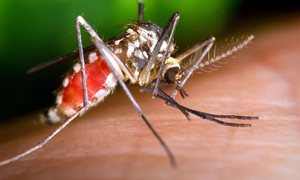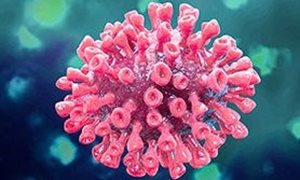28 November 2019
The list was recently published by the Web of Science Group. According to the creator of the list, the awarded researchers ‘have demonstrated significant influence through publication of multiple highly cited papers during the last decade’.
We congratulate Bart-Jan Kullberg (Cross-Field) and Jacques Meis (Cross-Field).

The list was recently published by the Web of Science Group. According to the creator of the list, the awarded researchers ‘have demonstrated significant influence through publication of multiple highly cited papers during the last decade’.
We congratulate Bart-Jan Kullberg (Cross-Field) and Jacques Meis (Cross-Field).
Related news items

Q fever antibody does not predict disease progression
6 July 2021 Joint study by Radboudumc, Jeroen Bosch Hospital and UMC Utrecht. go to page
First Dutch professor of infectious disease outbreaks at Radboud university medical center
4 June 2021 Chantal Bleeker-Rovers about research on coronavirus, Q fever and other infectious diseases outbreaks go to page
First volunteers vaccinated with Radboudumc malaria vaccine
20 May 2021 Today a new vaccine against malaria, largely developed in Nijmegen, is being tested for the first time in volunteers at Radboudumc. go to page
Chronic malaria infections produce more and more infectious gametocytes
28 April 2021 In a recent article in Nature Communications, researchers from the department of Medical Microbiology uncovered intriguing dynamics in the production of the transmission stages of malaria parasites, gametocytes. go to page
Trained immunity: a tool for reducing susceptibility to and the severity of SARS-CoV-2 infection
17 February 2021 In a review in Cell Mihai Netea, Frank van de Veerdonk, Reinout van Crevel and Jorge Dominguez Andres propose that induction of trained immunity by whole-microorganism vaccines may represent an important tool for reducing susceptibility to and severity of SARS-CoV-2. go to page